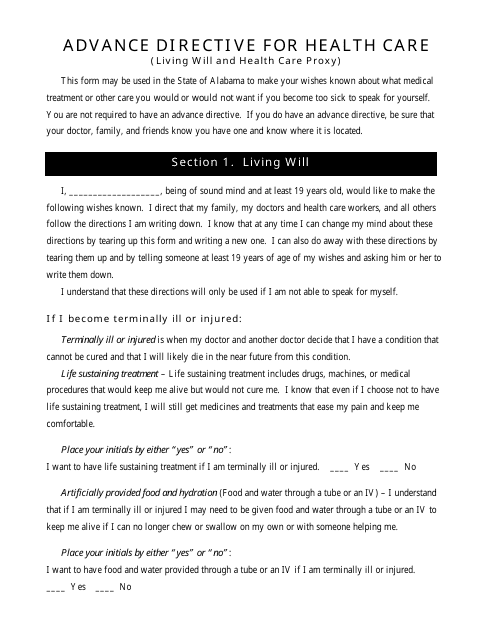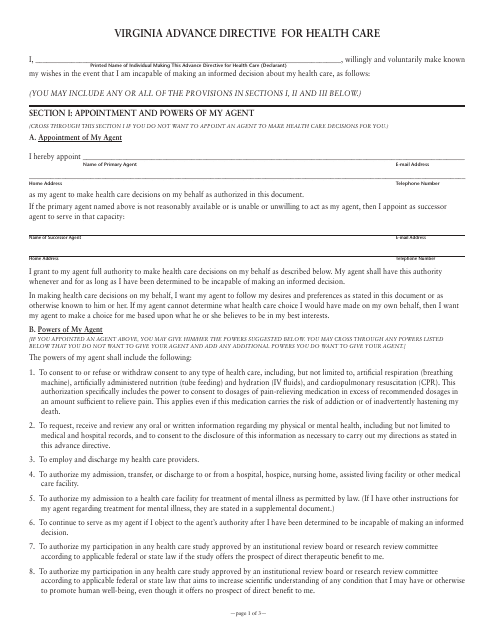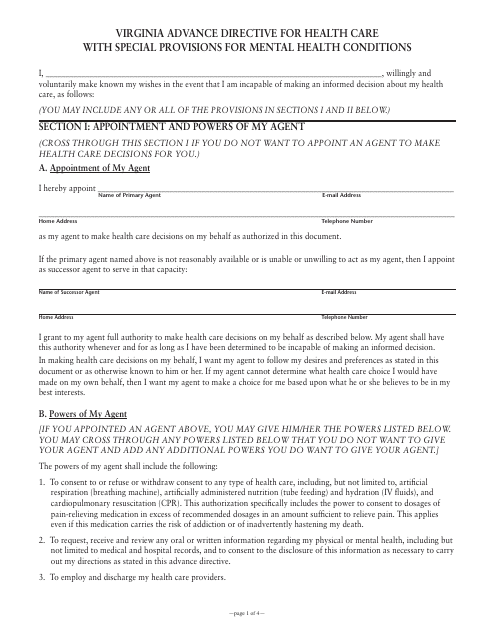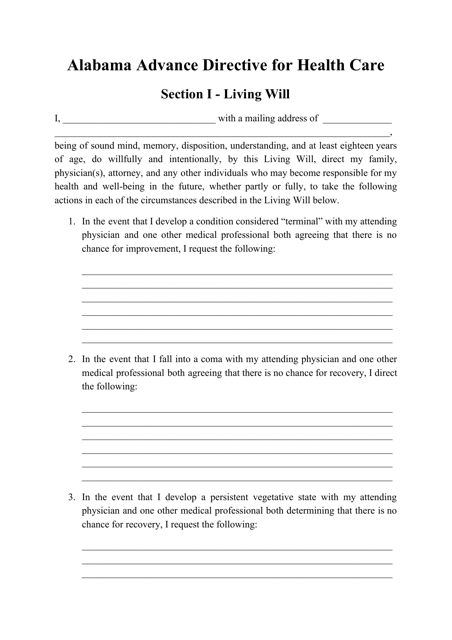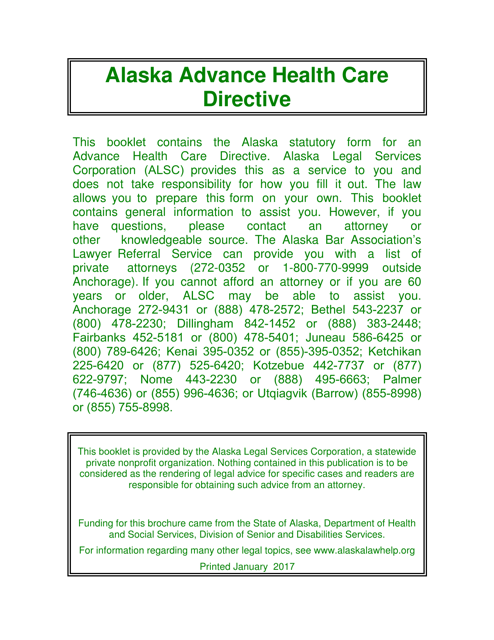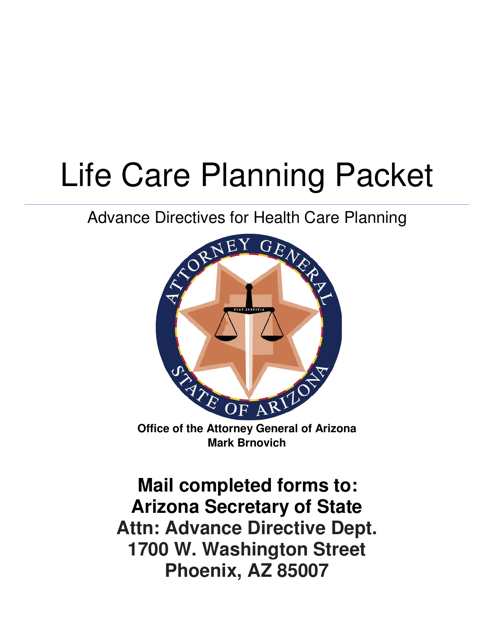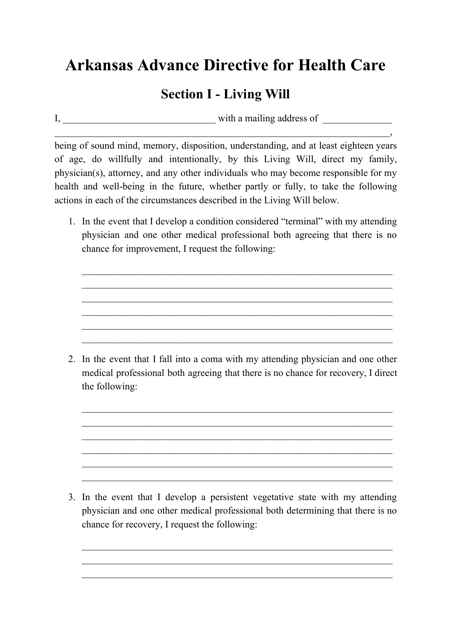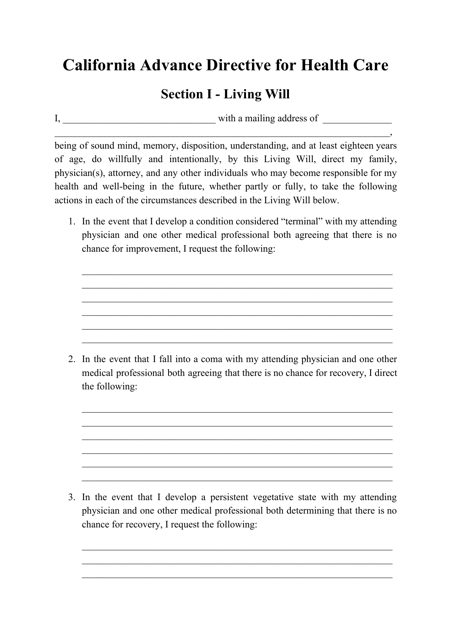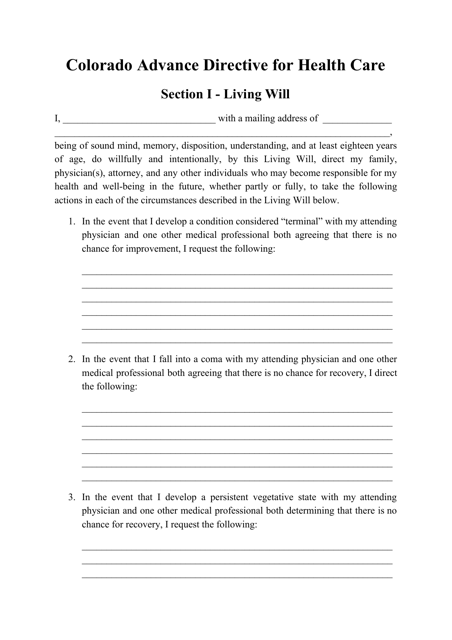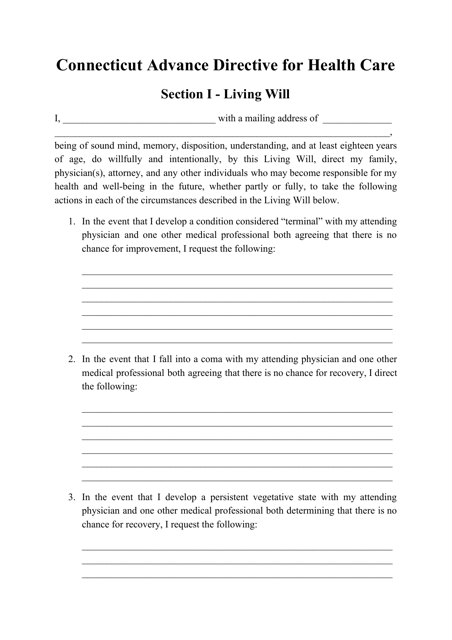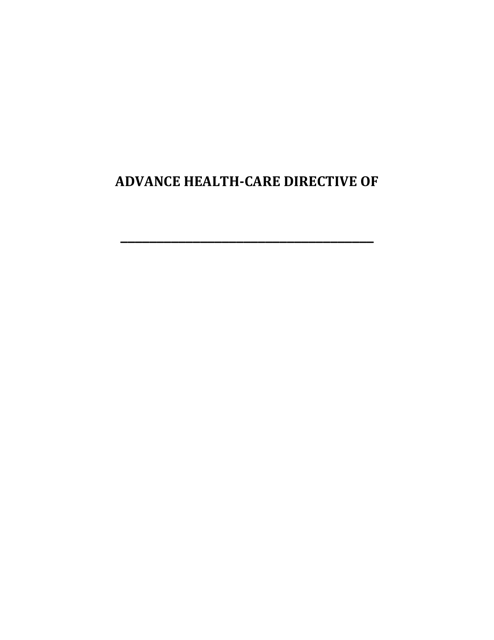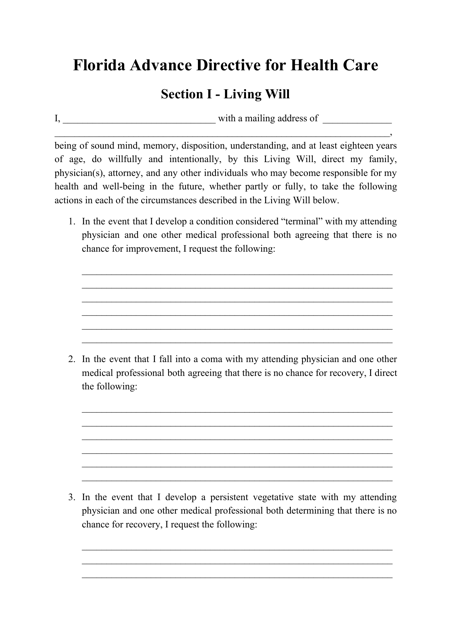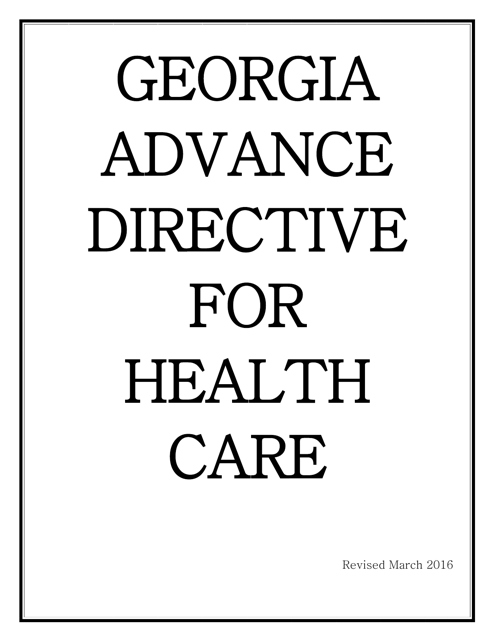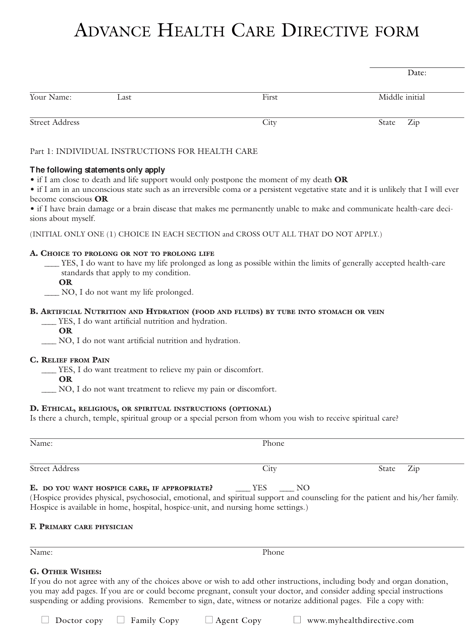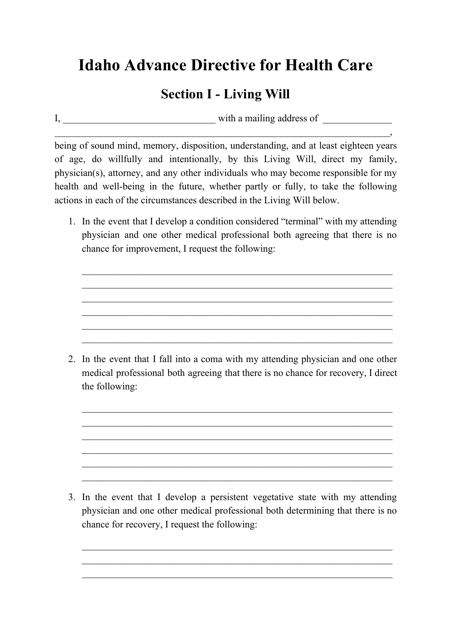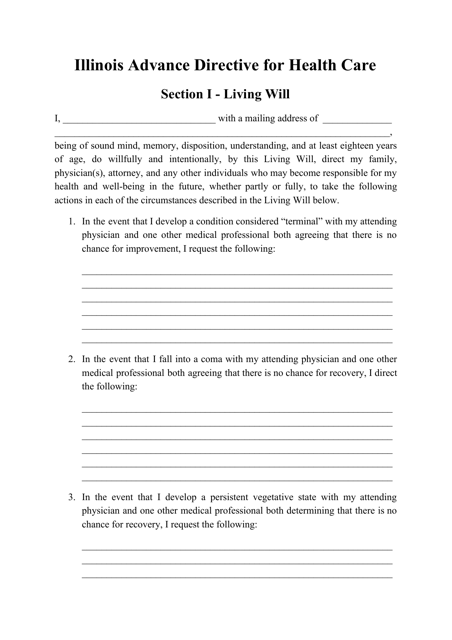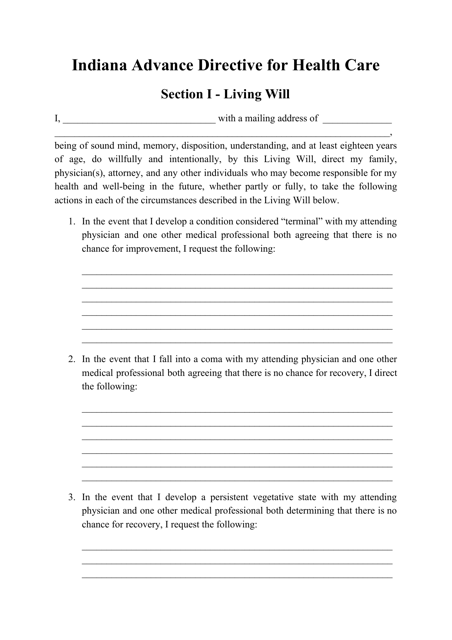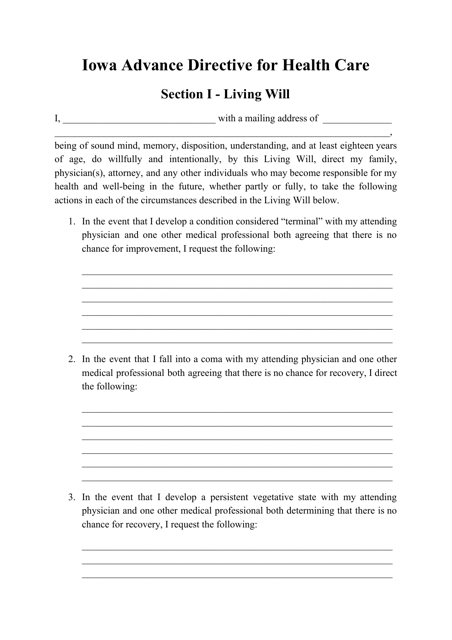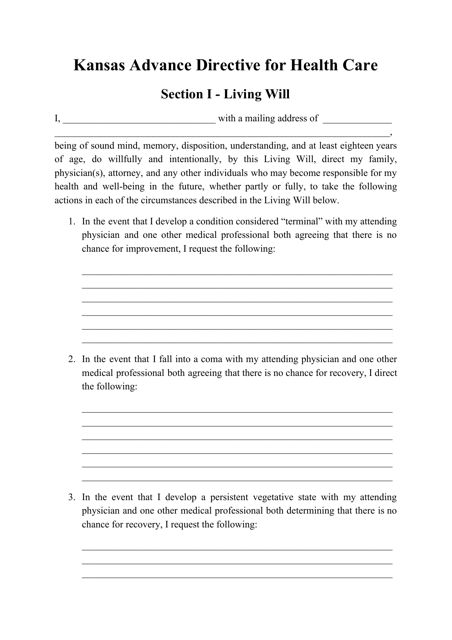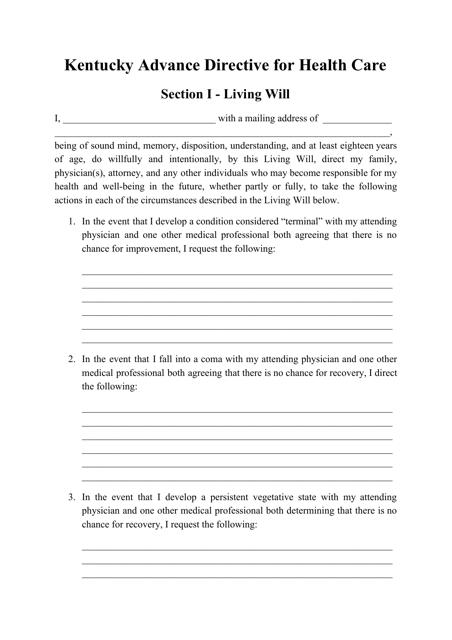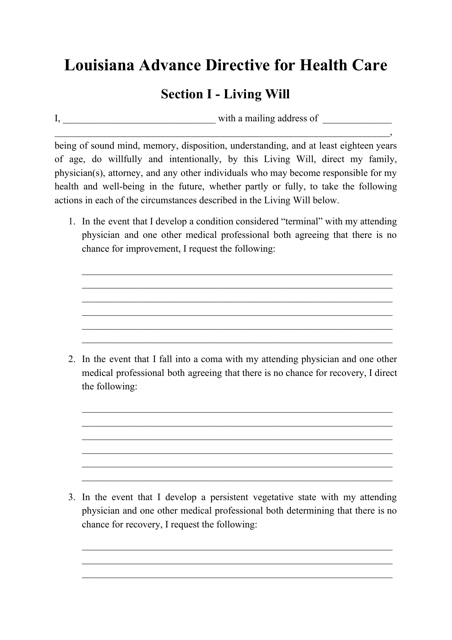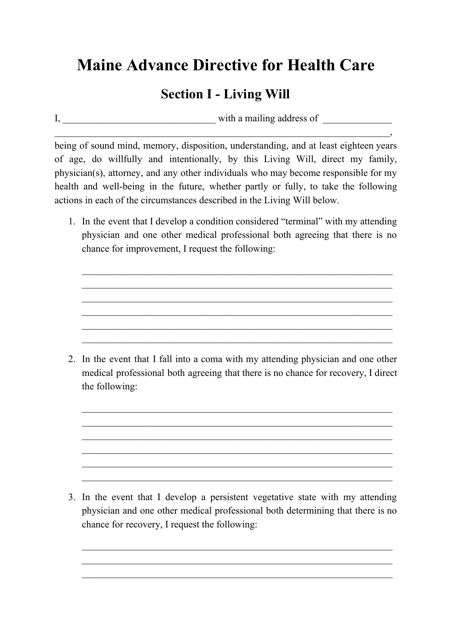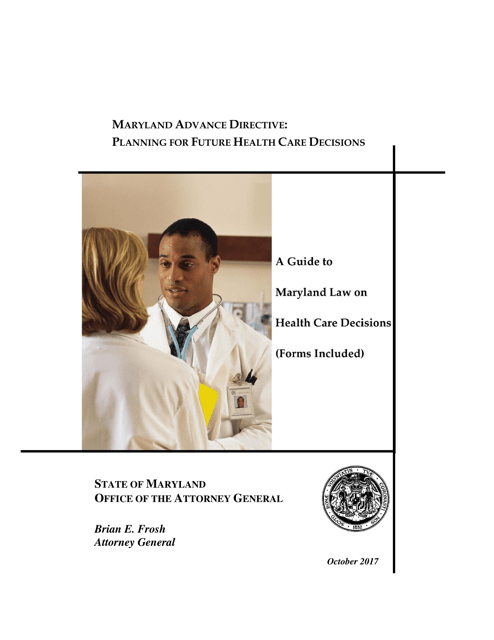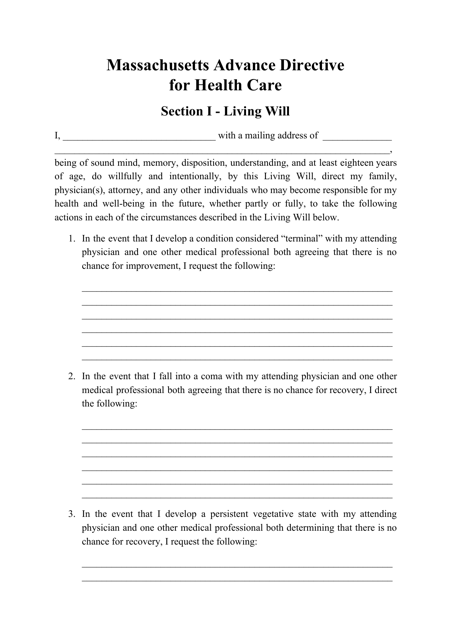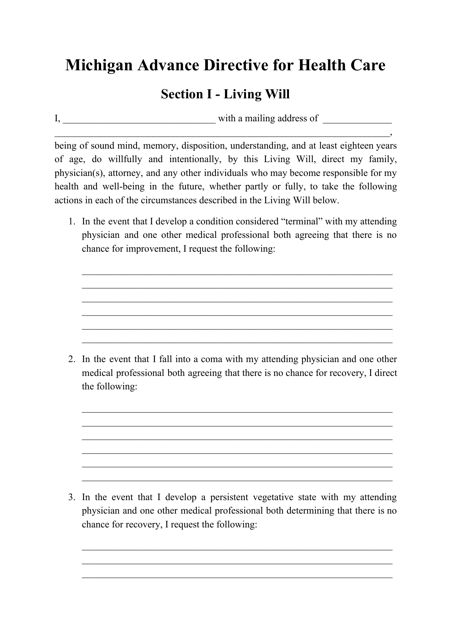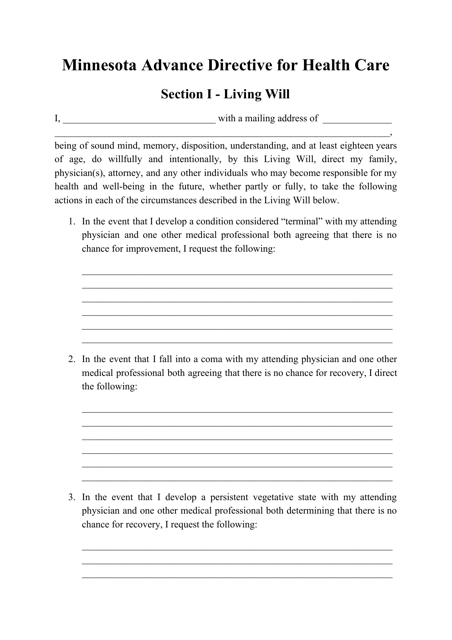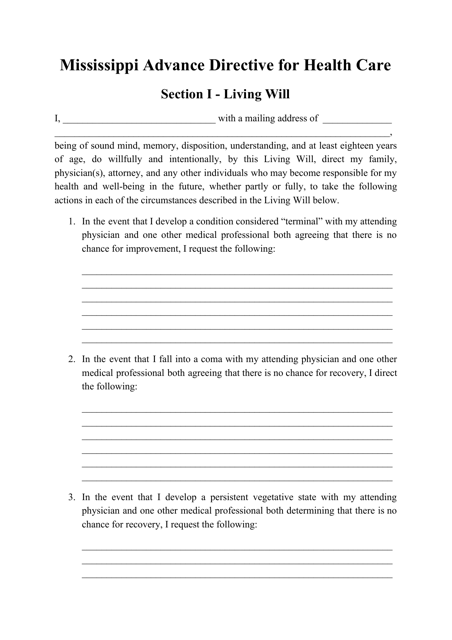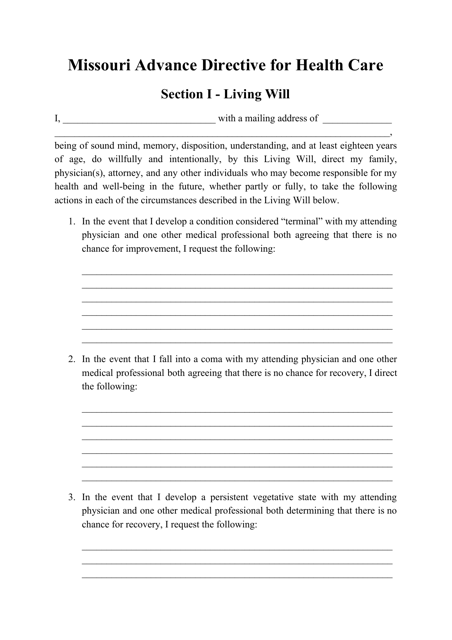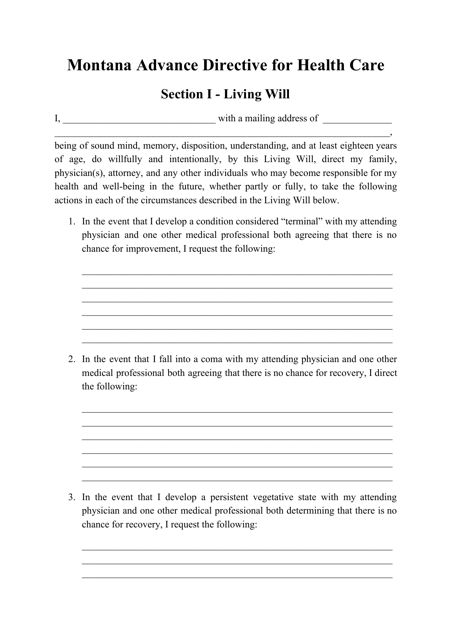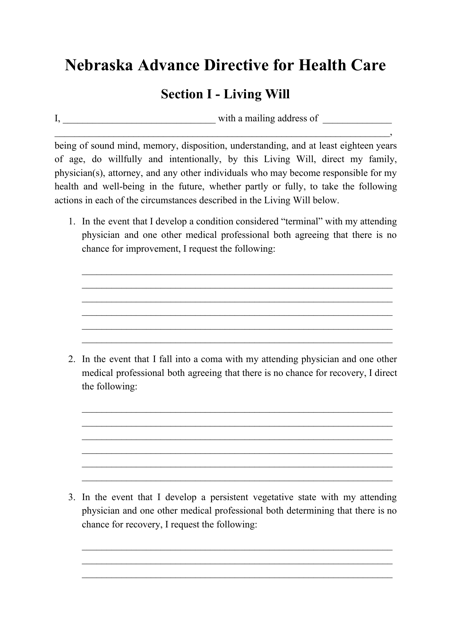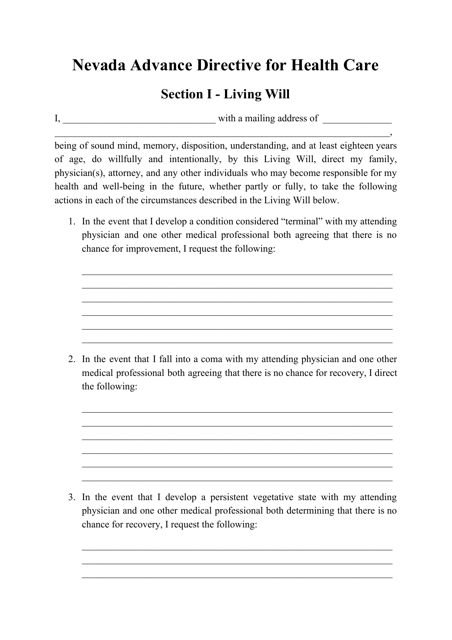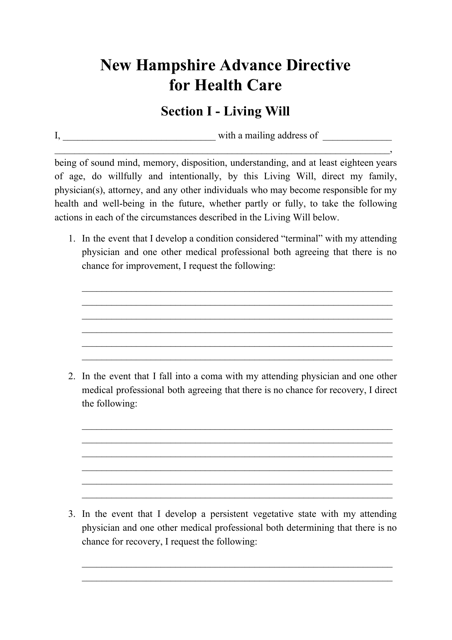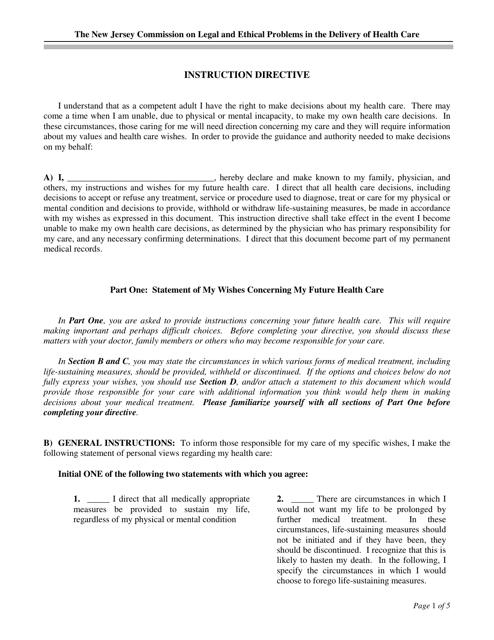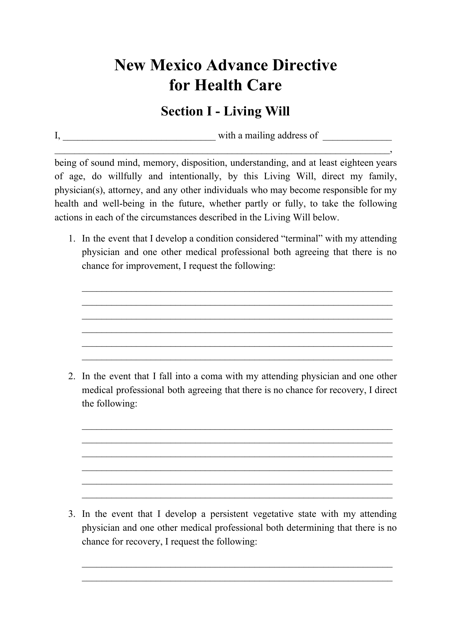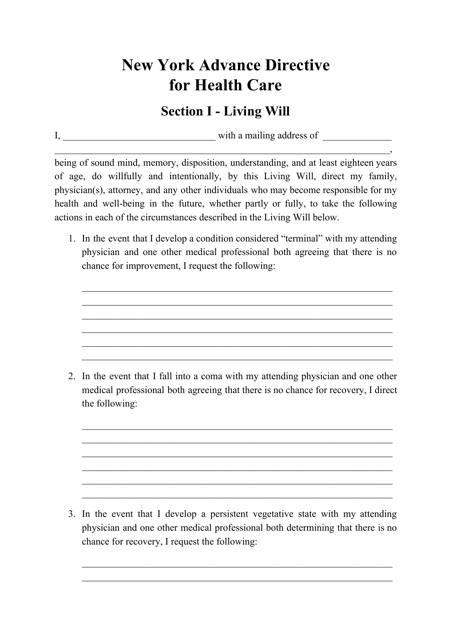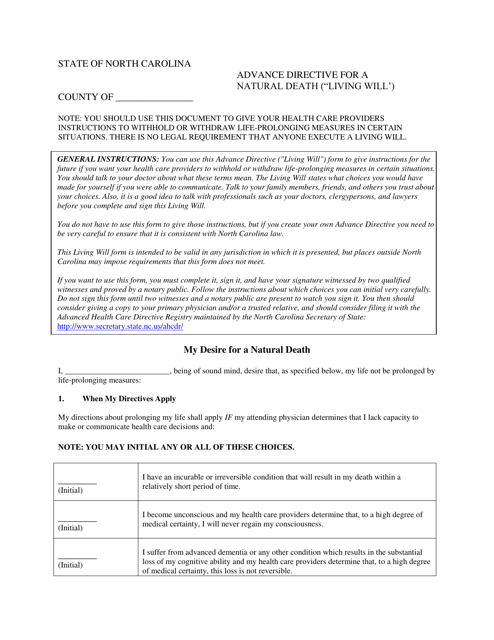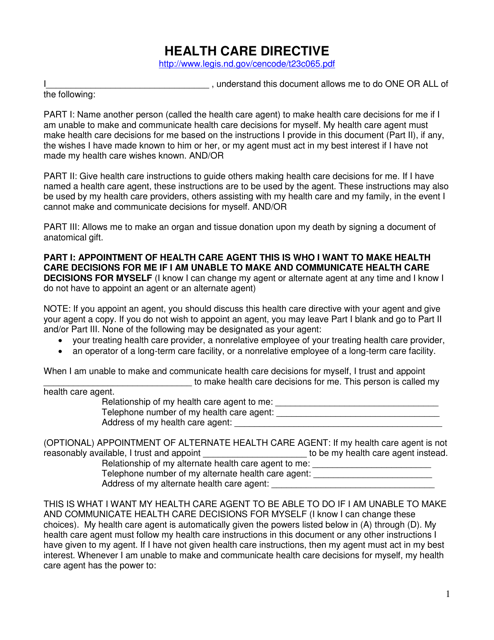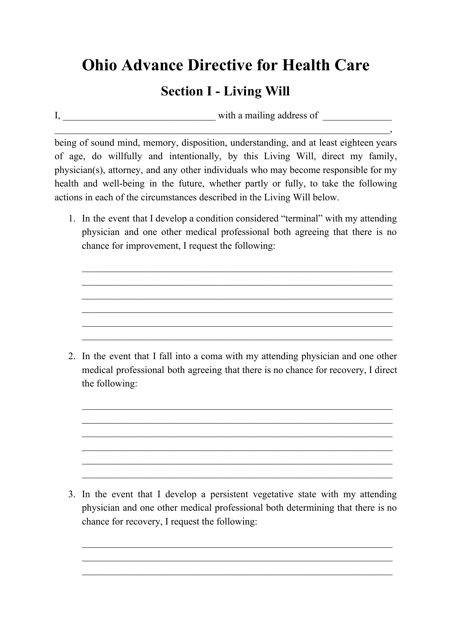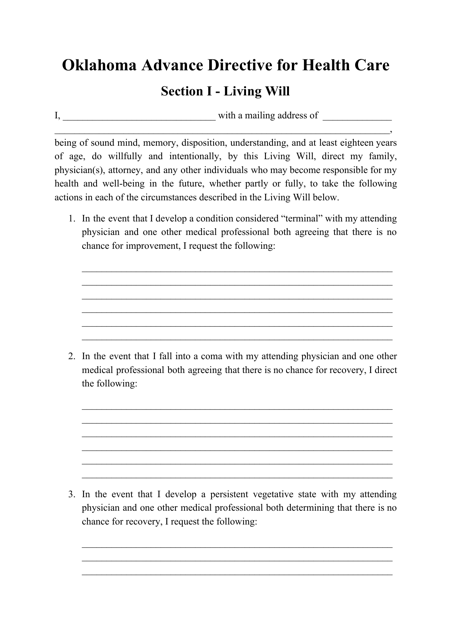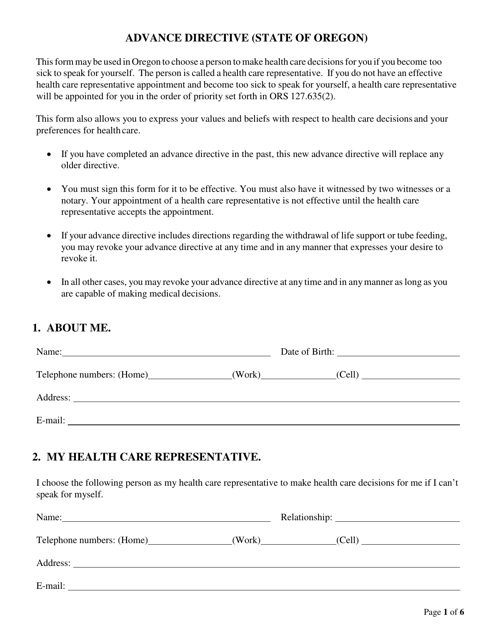Advance Directive Forms by State
An Advance Directive - most commonly confused with a Living Will or Healthcare Power of Attorney - is a form of will that allows an individual to decide on the medical care they would like to receive once they are no longer capable of communicating their wishes.
These specific documents mostly cover the wishes concerning life-sustaining treatment in the event of a life-threatening condition. Create your own form with our customizable template. Fillable free Advance Directive forms and templates are also available for download and digital filing through the links below.
What Is an Advance Directive?
Advance Directives are legal documents created to specify the actions which should be taken for a person’s health in the case of their inability to make decisions because of an illness or incapacity. The concept was originally created as a response to the rapidly developing medical technology. After a number of studies, the process of dying had been found to be unnecessarily painful, too long, expensive, and emotionally exhausting for both patients and their families.
An Advance Directive for healthcare can be given different names depending on the state you live in: a living will , a declaration , a power of attorney, or a patient advocate designation . All of these documents let you assign a list of instructions about the types of treatment you want to receive and appoint a health care professional who should oversee your treatment.
Even a complete and legalized form can be revised and updated later in life. Caregivers and patients must discuss the contents and all changes to the paperwork in order to ensure the feasibility of all wishes and keep all participants informed.
Advance Directive Templates by State
Every state has its own requirements for the legality of healthcare-related paperwork. The laws that apply within the state of your primary residence will govern your will. Most states require that you have at least two witnesses and personally sign your will. See state-specific laws for the requirements applicable in your case.
How to Write an Advance Directive?
The process of creating an Advance Directive includes several basic but necessary steps. The content of the forms is pretty uniform even with the variety of state laws regarding wills in general.
There is a number of other things to think about while writing advance health care directives:
- Would the patient agree with the use of medical equipment - such as dialysis machines or ventilators;
- DNR orders;
- Whether or not the patient wants tube feeding if they are not able to eat and drink;
- Whether or not the patient would like to receive treatment for pain, nausea or other symptoms;
- Whether or not they would want to donate their organs.
After discussing the main content of the form it’s important to:
- Find the specific living will or medical power of attorney forms for your state or use a universal form. In reality, a doctor will respect your wishes regardless of the medium you choose.
- Choose a health care agent - a person you trust to make important decisions for you.
- Fill out the form and get it witnessed according to the laws of your state.
- Provide your family, your doctor and your health care agent with copies of the completed and notarized form.
Advance Directive Vs. Living Will
The main difference between Advance Directive and Living Will is that a Living Will is one type of Advance Directive and it takes effect when a person has a terminal illness.
The main types of Advance Directive are:
- Living Will. This document controls particular healthcare decisions only when a person becomes unable to decide and make choices on his/her own. A person also has to be in a state of permanent unconsciousness or have a terminal illness. In other words, a patient cannot be cured. If there is a hope of recovery, a Living Will generally does not apply to this situation. A Living Will describes a list of medical treatments a person wants or does not want to undergo.
- Double Power of Attorney for Health Care. This is a document made to assign a person to be your proxy, or agent, to make all of your health care decisions if you are not able to do so anymore. An agent can talk to doctors on your behalf and make decisions regarding the direction you have chosen.
- "Do Not Resuscitate" Orders or DNR. In a hospital, a DNR order means that if you stop breathing or your heart stops, the hospital personnel will not attempt resuscitation. It allows for a death to occur naturally and can also be called an “Allow Natural Death” order. Among other things, the term "DNR" may be used outside of a hospital for Emergency Medical Service teams, who answer 911 calls and are required to try to save a patient’s life in every way they can. Even though families expecting a death are advised to call other sources for help when the patient dies, a moment of uncertainty sometimes results in a 911 call. This can mean unwanted measures are used.
Advance Directive Related Forms
A Will, in general, means a legal document that sets up the ways your estate will be distributed and overlooks the care of any minor children left after your passing. To be sure that your wishes will be carried out, the Will must meet state standards and be signed by a witness. If you don’t have a Will you die "intestate", which means the state will oversee the distribution of your assets, but the important thing is that the state doesn’t inherit anybody’s assets, but distributes them according to a set formula. The formula usually means that half of your property will go to your spouse and the other half to your children.
A Last Will is a legal document designed to explain and clarify details of what you want to happen with your property and other issues at the time of your death.
Documents:
51
This document is used for planning your medical care in advance, specifying your preferences and appointing a healthcare proxy to make decisions on your behalf. It is specific to the state of Alabama.
This Form is used for creating an Advance Directive for Health Care in the state of Virginia. It allows individuals to make decisions about their medical treatment in the event they become unable to communicate their wishes.
This document provides a comprehensive advance directive for healthcare in Virginia, with specific provisions for mental health conditions. It allows individuals to outline their healthcare preferences and designate a trusted person to make decisions on their behalf, taking into account their mental health needs.
This legal form encompasses the orders concerning your wishes about your future medical care in the state of Alabama. The document comes into play in the event of severe medical situations in which you are not able to communicate your wishes or make decisions.
Use this Alaska-specific form for cases when you are not able to communicate your wishes or make decisions. These may include directions regarding the use of mechanical ventilation or feeding tubes, as well as certain surgeries and medications.
Download this Arizona-specific Advance Directive for Health Care and consult your Area Agency on Aging, a lawyer, or financial planner before signing.
This Arkansas document encompasses the orders concerning your wishes about your future medical care. The document comes into play in the event of severe medical situations in which you are not able to communicate your wishes or make decisions.
Use this document to give directives surrounding your future medical care in the state of California.
Download this Colorado form for a potential situation when a medical issue leaves you unable to express your wishes about medical treatment.
Use this Connecticut-specific document to give directives surrounding your future medical care. These scenarios may include such conditions as a coma, stroke or dementia.
Use this Delaware-specific form for cases when you are not able to communicate your wishes or make decisions. These may include directions regarding the use of mechanical ventilation or feeding tubes, as well as certain surgeries and medications.
Use this form in the state of Florida for a potential situation when a medical issue leaves you unable to express your wishes about medical treatment.
These are Georgia-specific written instructions about future medical care should you become unable to make decisions (for example, unconscious or too ill to communicate).
Download this Hawaii form to state your preferences for your healthcare in the event you are no longer able to decide for yourself.
This form is used in Idaho as part of the patient's medical records and determines health care measures to be taken in the event of the patient's mental or physical incapacity.
Use this Illinois-specific form for cases when you are not able to communicate your wishes or make decisions. These may include directions regarding the use of mechanical ventilation or feeding tubes, as well as certain surgeries and medications.
Use this form in the state of Indiana for a potential situation when a medical issue leaves you unable to express your wishes about medical treatment.
These are Iowa-specific written instructions about future medical care should you become unable to make decisions (for example, unconscious or too ill to communicate).
Download this Kansas form to state your preferences for your healthcare in the event you are no longer able to decide for yourself.
This form is used in Kentucky as part of the patient's medical records and determines health care measures to be taken in the event of the patient's mental or physical incapacity.
Use this Louisiana-specific form for cases when you are not able to communicate your wishes or make decisions. These may include directions regarding the use of mechanical ventilation or feeding tubes, as well as certain surgeries and medications.
Use this form in the state of Maine for a potential situation when a medical issue leaves you unable to express your wishes about medical treatment.
These are Maryland-specific written instructions about future medical care should you become unable to make decisions (for example, unconscious or too ill to communicate).
Download this Massachusetts form to state your preferences for your healthcare in the event you are no longer able to decide for yourself.
This form is used in Michigan as part of the patient's medical records and determines health care measures to be taken in the event of the patient's mental or physical incapacity.
Use this Minnesota-specific form for cases when you are not able to communicate your wishes or make decisions. These may include directions regarding the use of mechanical ventilation or feeding tubes, as well as certain surgeries and medications.
Use this form in the state of Mississippi for a potential situation when a medical issue leaves you unable to express your wishes about medical treatment.
These are Missouri-specific written instructions about future medical care should you become unable to make decisions (for example, unconscious or too ill to communicate).
Download this Montana form to state your preferences for your healthcare in the event you are no longer able to decide for yourself.
This form is used in Nebraska as part of the patient's medical records and determines health care measures to be taken in the event of the patient's mental or physical incapacity.
Use this Nevada-specific form for cases when you are not able to communicate your wishes or make decisions. These may include directions regarding the use of mechanical ventilation or feeding tubes, as well as certain surgeries and medications.
Use this form in the state of New Hampshire for a potential situation when a medical issue leaves you unable to express your wishes about medical treatment.
These are New Jersey-specific written instructions about future medical care should you become unable to make decisions (for example, unconscious or too ill to communicate).
Download this New Mexico form to state your preferences for your healthcare in the event you are no longer able to decide for yourself.
This form is used in New York as part of the patient's medical records and determines health care measures to be taken in the event of the patient's mental or physical incapacity.
Use this form in the state of North Carolina for a potential situation when a medical issue leaves you unable to express your wishes about medical treatment.
Use this North Dakota-specific form for cases when you are not able to communicate your wishes or make decisions. These may include directions regarding the use of mechanical ventilation or feeding tubes, as well as certain surgeries and medications.
Use this form in the state of Ohio for a potential situation when a medical issue leaves you unable to express your wishes about medical treatment.
These are Oklahoma-specific written instructions about future medical care should you become unable to make decisions (for example, unconscious or too ill to communicate).
Download this Oregon form to state your preferences for your healthcare in the event you are no longer able to decide for yourself.

